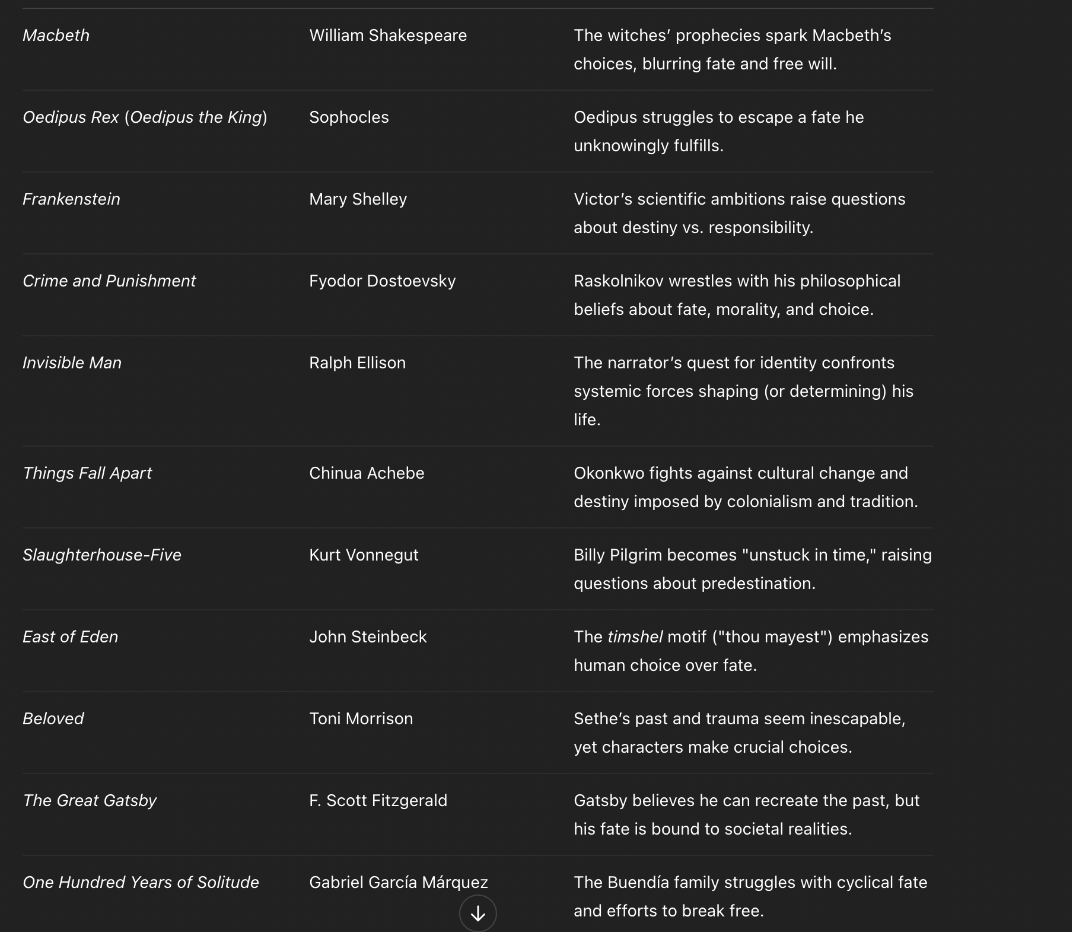How power can corrupt individuals or societies.
YOU MUST GIVE AN EXAMPLE:
Power vs Curruption
Claudius in Hamlet
Serena Joy/ Aunts in Handmaid's Tale
Two answers needed: Repetition of vowel sounds & Repetition of consonant sounds.
Assonance & Consonance
Intended to teach or instruct, often with a moral or political lesson.
Didactic
Language that has multiple meanings or is open to interpretation.
Ambiguity
Mood vs Tone (You explain the difference)
Tone = author’s attitude; Mood = reader’s feeling.
You must give an example:
Characters separated from society or loved ones, physically or emotionally.
Alienation & Isolation
Baba in Kite Runner
Gatsby
OfFred
Holden
A narrative in which characters, events, and settings represent abstract ideas or morals.
allegory
Overly concerned with formal rules, minute details, or displaying academic learning ostentatiously.
Pedantic
Repetition of the same word or phrase at the beginning of successive clauses or sentences.
Anaphora
Ironic vs. Sarcastic → Explain the difference
Irony involves contrast between expectation and reality; sarcasm is often bitter mockery.
Give a literay example of: Fate vs. Free Will

Narrative style that presents a character’s thoughts as they occur.
Framed Narrative
Grimly mocking or cynical in tone.
Sardonic
The omission of conjunctions between parts of a sentence (e.g., "I came, I saw, I conquered").
Asyndeton
Elegy vs Eulogy- Explain the difference
Elegy
A poem (or serious, reflective piece) mourning the death of someone or something lost. Example: "O Captain! My Captain!" by Walt Whitman (mourning Lincoln).
Eulogy
A speech given at a funeral or memorial service, praising and remembering someone who has died.
Give the theme & an example of: Discrepancy between how things seem and how they truly are.
Appearance vs. Reality
Daily Double!!!!!
Replacing the name of a thing with something closely related (e.g., "the crown" for royalty).
Metonymy
A logical argument composed of a major premise, minor premise, and a conclusion.
Syllogism
A rhetorical contrast of ideas by means of parallel construction (e.g., "It was the best of times, it was the worst of times").
Antithesis
Symbol vs Motif
Explain the difference
Symbol
An object, character, color, or event that represents a larger, often abstract idea.
Example: The green light in The Great Gatsby symbolizes Gatsby’s hopes and the American Dream.
Motif
A recurring element (idea, image, word, or symbol) that reinforces or develops a theme throughout a work.
Example: The repeated references to eyes and vision in Invisible Man emphasize perception and identity.
Give a liteary example of the following themes (you must be able to explain your choices)
The Individual vs. Society
Conflicts between personal desires and societal expectations or rules.
Mortality & Immortality
Reflections on death, aging, and the desire to overcome mortality.
Resistance & Rebellion
Characters pushing back against control, oppression, or expectations.
Answers will vary, MS Jen wil agree or disagree
A concise statement that expresses a general truth or principle.
Aphorism
Informal language or slang used in everyday speech.
Colloquialism
A concise statement that expresses a general truth or principle.
Aphorism
Daily Double: Paradox vs Juxtaposition
Paradox = a contradictory idea or statement that invites deeper thought.
Juxtaposition = a contrast in placement (no inherent contradiction, just a comparison).